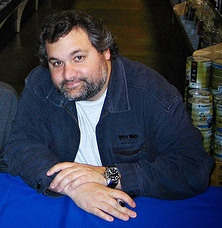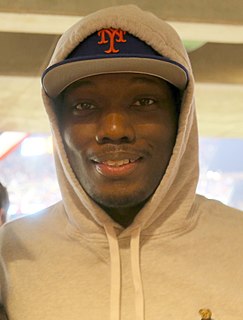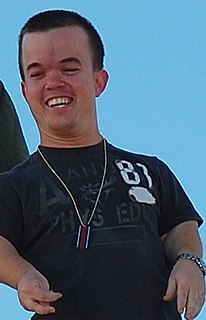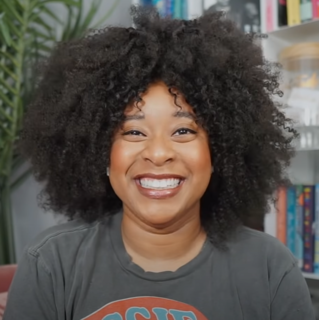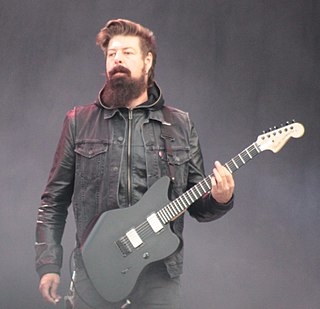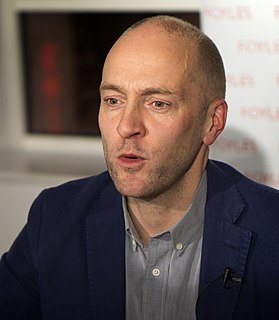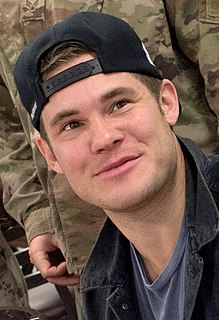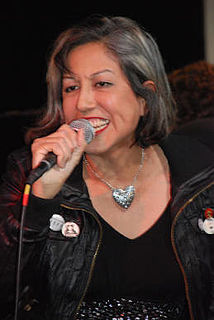A Quote by Artie Lange
It's weird because standup can be like therapy. Comedians can't be satisfied with just having fun with our friends. We've got to figure out a way to do it on stage.
Related Quotes
I feel like most standup comedians do it the way I did it, where you just go to open mics and cut your teeth. Sketch and improv - they take a lot of classes. It's not unusual, the way I did it. It's just that, with standup, no one knows how to start because there's no book for it; there's no place you can really go.
Standup led me to acting because I liked standup, and I saw people on a stage, and the closest, nearest thing to me was doing plays. It was like, that's the same thing as standup - people are on a stage; they're being seen and saying things - so, because of my love of standup, I moved towards acting.
Music feels like therapy, actually. A lot of people come out of a therapy session and feel like a weight has been lifted - I got it out, I cried, I feel good. I think for me this is just my way of doing that. It's the only avenue I have that fulfills that, that makes me feel good about myself. And I don't mean that in regards to the rewards, or like getting some good review. That's not what it's about. It's more about trying to please myself. It's really sick and weird.
Before I even knew what stand up was, I tried to make people laugh at school because that was how I made friends, so I think that's how I got drawn into comedy and obviously I was just some kid at school being silly, so the first time I saw a professional comedian and how smooth and funny the person was I totally got into standup and I would say obviously Richard Pryor was the guy. He's the greatest of all time and then George Carlin, Sam Kinison, Bill Cosby. It's so weird to bring up his name now but leaving out his off-stage antics... you could learn a lot from him.
The personal boundaries, I think for comedians they're a little bit different anyway, but I think people - feel free to do stuff - It's interesting with comedians because when we walk on stage, oftentimes we're talking about ourselves for an hour and we're talking about very intimate details, so after hearing us for an hour, a lot of people feel very comfortable with us because they feel like they know us and they're our friends because we just told them our innermost secrets and details of our lives for an hour. What they forget is we know absolutely nothing about the audience.
Growing up, I didn't know anything about comedy and didn't know anything about comedians or what standup was. I grew up in the projects with no dream of anything, it was in my formatting when i got older and started talking to my friends about how I felt, they would be like, "dude, that's funny." Then one day my friend was like, "Dude, you don't understand how funny you are, you need to do standup"!
I've seen the Tortilla Guy hashtag when I'm going through my Instagram and all of that and I think it's pretty funny. It's weird because I've met this guy before, I know who he is, but he's really kind of elusive, even around our camp. I've had some people tell me, 'Don't tell us who he is. We're having fun trying to figure it out!'
I was full of energy, and I had a lot of bottled up rage that would come out in my stage performances. It was therapy sessions for someone who couldn't afford to go to therapy, a way to release my frustration, my inhibition. When I was little, growing up in an abusive household, I felt like I didn't have a voice. Suddenly I was on stage and people were watching me and listening to me, so even if I was singing about something that didn't have to do with abuse, when I was on stage I could express all of the anger, the rage.
I was extremely lucky to get this project [Brief Interviews with Hideous Men]. It was one of those things that I worked on in college. A friend of mine asked me to do a stage reading of that book and I was just completely blown away because, at that point, I was like, 'Acting's having fun with your friends and making people laugh.'
